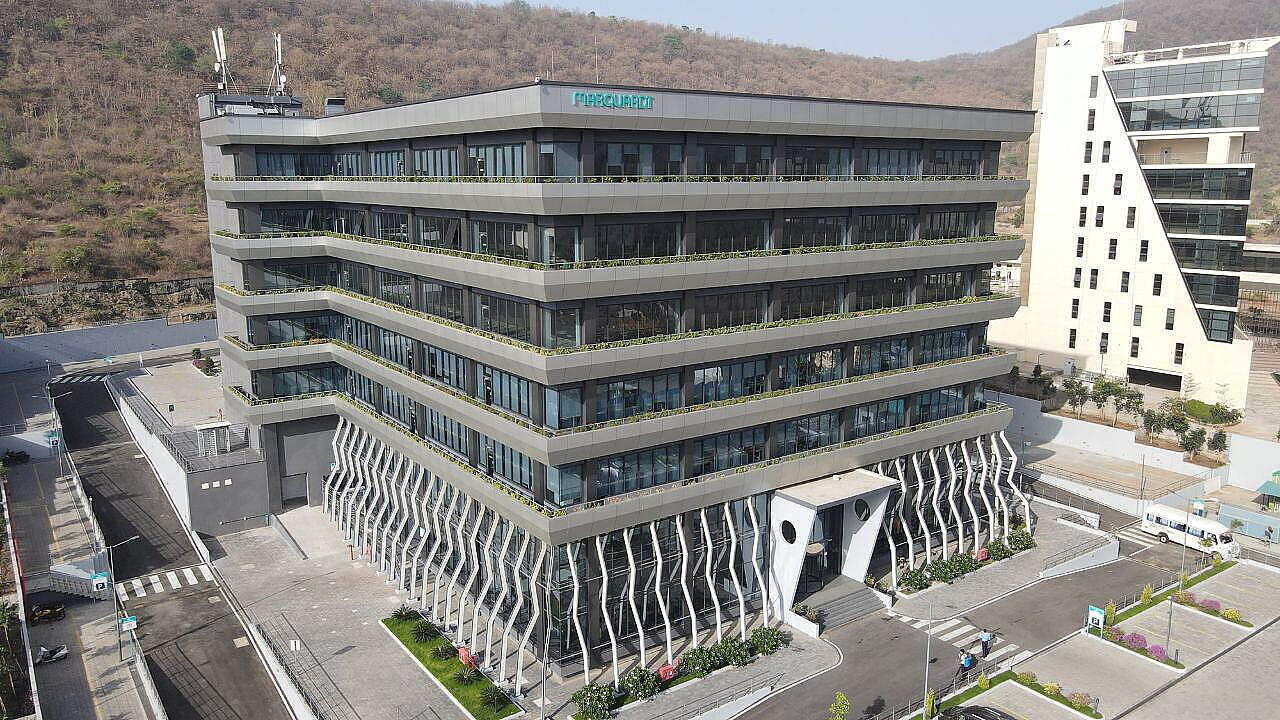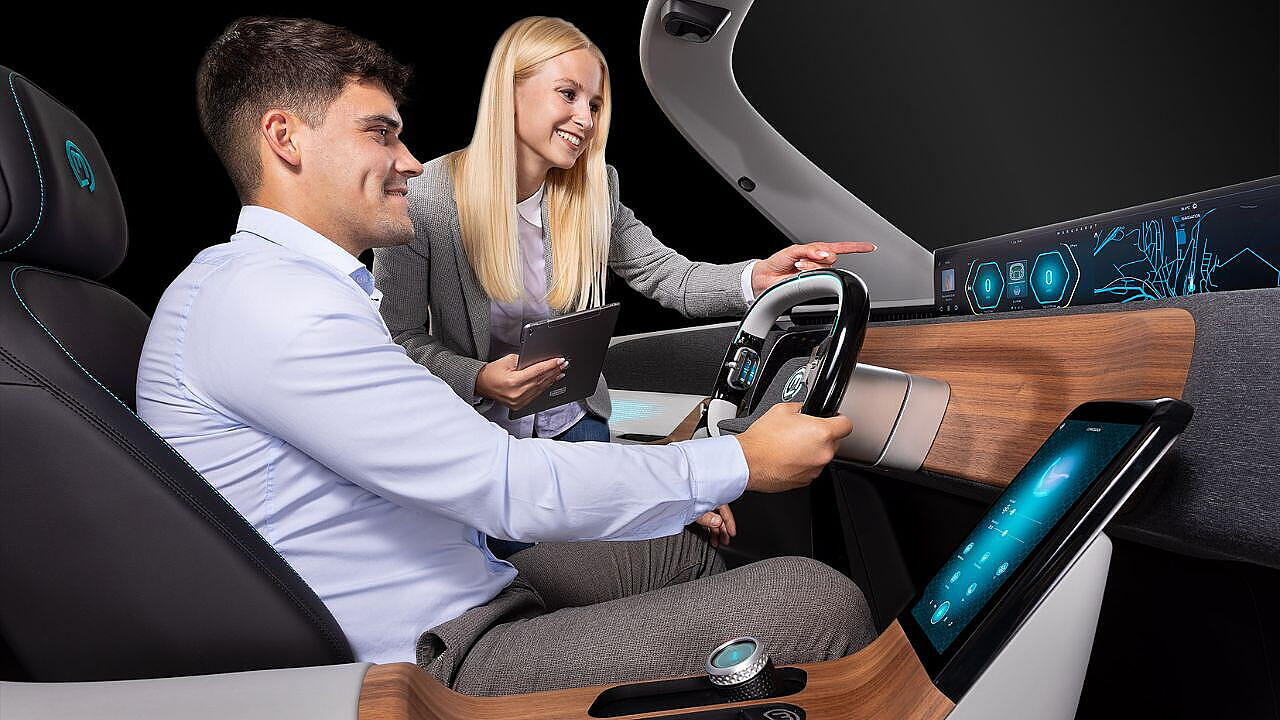
As the third generation family representative of a 98-year-old group, Harald Marquardt believes India’s time has well and truly come in the global automotive arena.
The CEO of Marquardt, which makes electromechanical and electronic switches/switching systems for automobiles, was recently in India for the inaugural of its INR 100 crore global R&D centre in Pune.
This was followed by an announcement to build a plant at Talegaon near Pune for electronics manufacturing. As the press release stated, the group would also develop assembly of battery management systems for electrically powered vehicles at the R&D centre.
The Germany-based Marquardt is betting big on growth in this part of the world and from its CEO’s point of view, it’s better late than never. After all, the group has been around in India since 1955 but pretty much kept a low profile for many decades. “However, with technology and skills picking up along with faster growth in the vehicle segment, we can see that the country is moving. We are in the right place at the right time,” says its CEO.

Higher Affluence Levels
As much as China continues to be an important market for the group, Harald Marquardt says this is a good chance for India to truly take off. “I believe that this country is ready in terms of more wealth overall with its people ready to invest and spend more in seeking a better lifestyle,” he explains.
More importantly, there are more skilled professionals here, when compared to other countries, who are “young, enthusiastic and willing to show that they are better than the rest”. While conceding that the group has in a sense been dormant in India for long, Marquardt believes that “you also need a long bandwidth for getting in touch with the right people and convincing Indian customers”.
It is now making up for lost time by “investing in the market for the market and then developing ourselves globally”. The key, he continues, is to first trust customers who reciprocate this faith and this process takes time. Over the years, the German group has only had people at basic levels in its Indian operations and did not see any urge to invest even while there were some customers to cater to.
Today, Marquardt is confident that the group “can really develop the market both in India and globally”, which makes it a win-win proposition for all stakeholders. The interesting part about the new investment plans is on electric mobility but volumes are still low with infrastructure remaining a challenge in markets like India.

Electric Transition
According to him, the transition will be driven by Europe, China and the US to an extent. The percentage of electric vehicles will still be small but from the group’s point of view this is not very consequential in terms of planning ahead.
“The beauty of our company is that since we are not in the engine (business), growth is assured. If one million cars are produced additionally, we will grow alongside too,” says Marquardt. According to him, even for engine specialists, money alone does not help since “you need the skills” and this is the huge challenge for auto suppliers in the internal combustion engine space.
Some companies are being pushed into areas where they are not entirely skilled or capable and “there is a high risk” in this transition to electric since they have no clue how to go about it. “They have the money but not the knowledge or skills,” he reasons.
Whilst on the subject of India, Marquardt is keen that more global skills be farmed out to the workforce here. “People entrusted with responsibility at a young age do a better job. I do not want them to do bits and pieces but to be given complete responsibility,” he says. If things are done well completely in India, it makes sense opting for this route “instead of bits and pieces across different locations”. This is what other companies typically do “but it is a waste of time and money”, especially when people in India are willing to go the extra mile.
Rapid Growth
The German ancillary supplier has five R&D locations worldwide of which Germany is the largest in terms of people — “though it could be overtaken by India by virtue of its growth pace” — followed by the US, Romania, Shanghai and Pune. “The strongest growth will definitely be here in India with nearly 70% of people here developing products globally.
Marquardt says once the Talegaon facility begins production by mid-2024 with everything in place right from assembly to testing and all necessary capabilities, the group will be “ready for India and the world”. He is hopeful that by the end of this decade, the country’s contribution will “be very high” even though there could be some challenges en route. “Without challenges, you are dead!” he quips.
Europe, in his view, will not escape from the recession — “and we are already in it thanks to the energy crisis arising from the war” — but “if you want the best, you need to be prepared for the worst”. There are geopolitical tensions also in the form of China vis-à-vis Taiwan and even though the country is critical to the group, India is poised to play an important role and could end up becoming “one of the main winners” in the process.
Global Volatility
This is a view shared by a host of global industry leaders who reiterate that chip suppliers will contemplate setting up more facilities in the US, Europe and India as part of the effort to stop being over-dependent on China. Marquardt also admits that with this level of global vocality, everyday is a “crystal ball gazing” exercise for a CEO “and I do my best”!
By the end of the day, the group caters to customers across the world and it is important not to overreact to events but ensure protection of assets. The key lies in “not jeopardising growth by doing something wrong in one country” and affecting the others in the process. “We have not done too badly over the last few decades,” he adds laughing.
According to Marquardt, the group (which turns 100 in 2025) would like to stay private even while there is no telling what uncertainties lie ahead. “Customers like us because when it comes to flexibility and decision making, we are better than some rivals even if they are bigger. I do believe we are more nimble and doing things differently even while we need to be prepared for the future,” he signs off.
Also Read:
Lumax Invests INR 100 Cr To Manufacture Electronic Components At Bawal
Collins Aerospace Electronic Cabin Bag Solution Furthers Touchless Experience